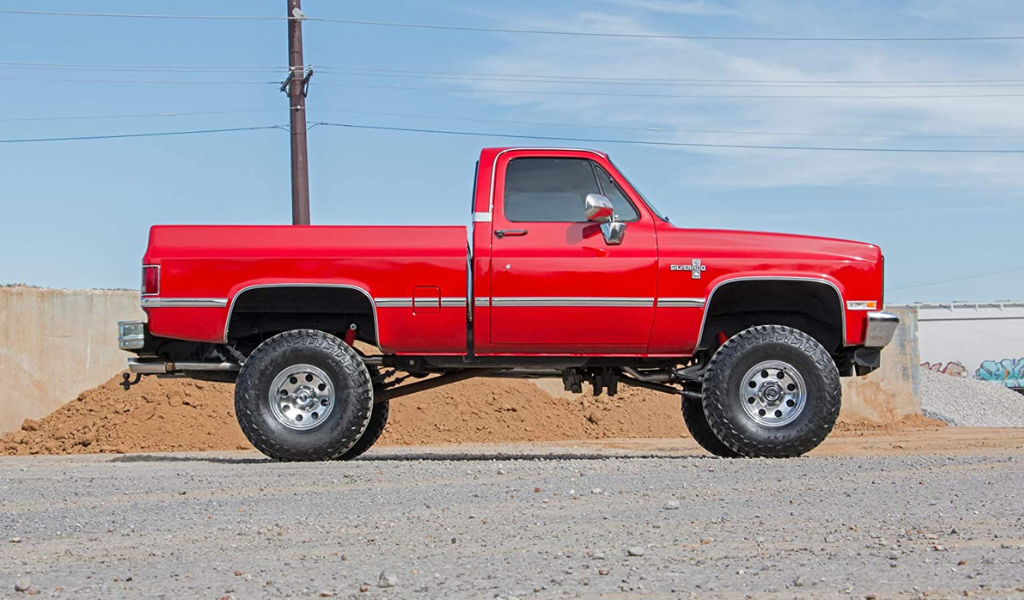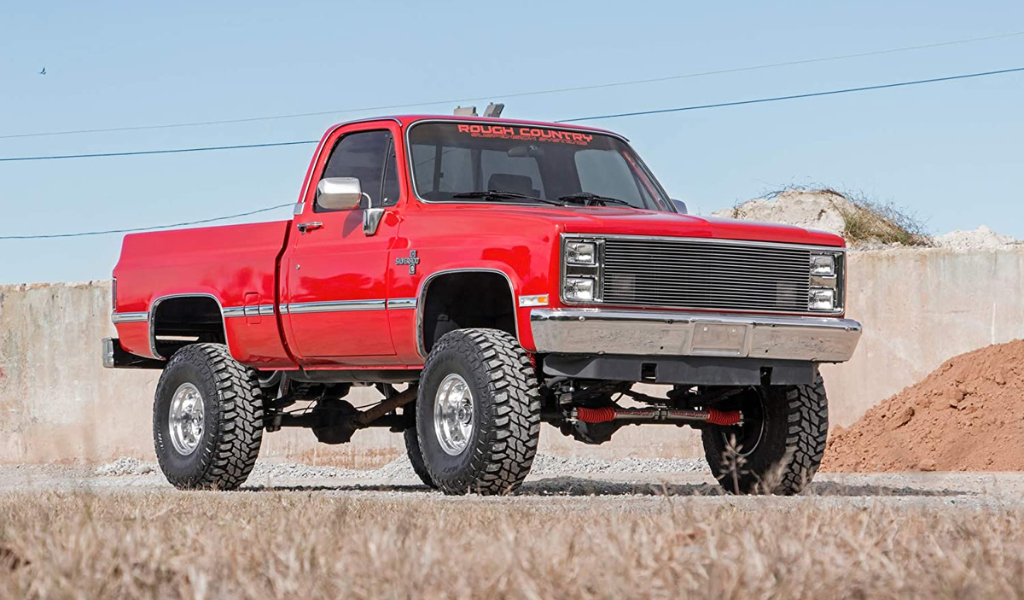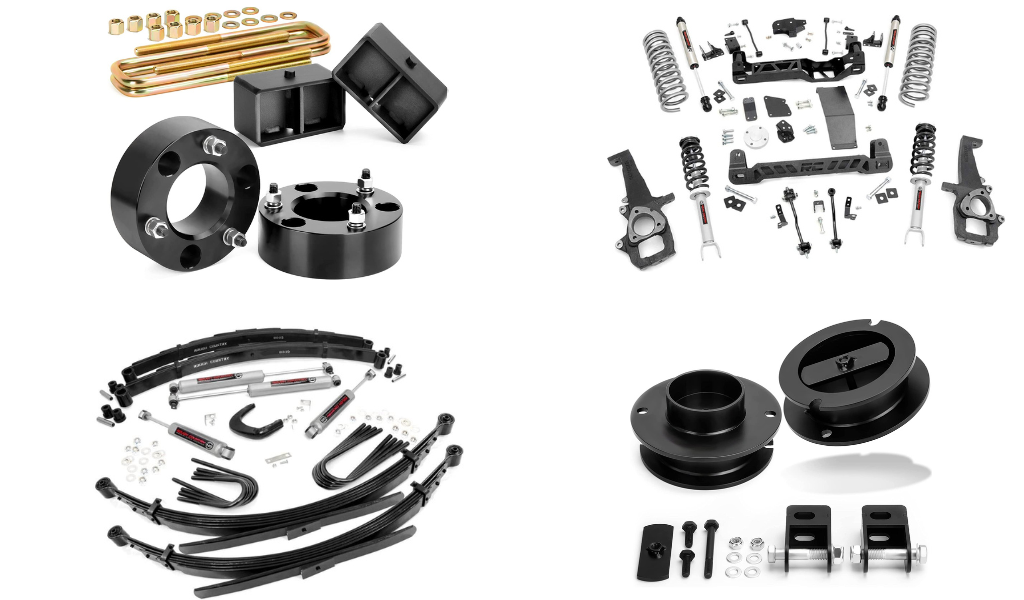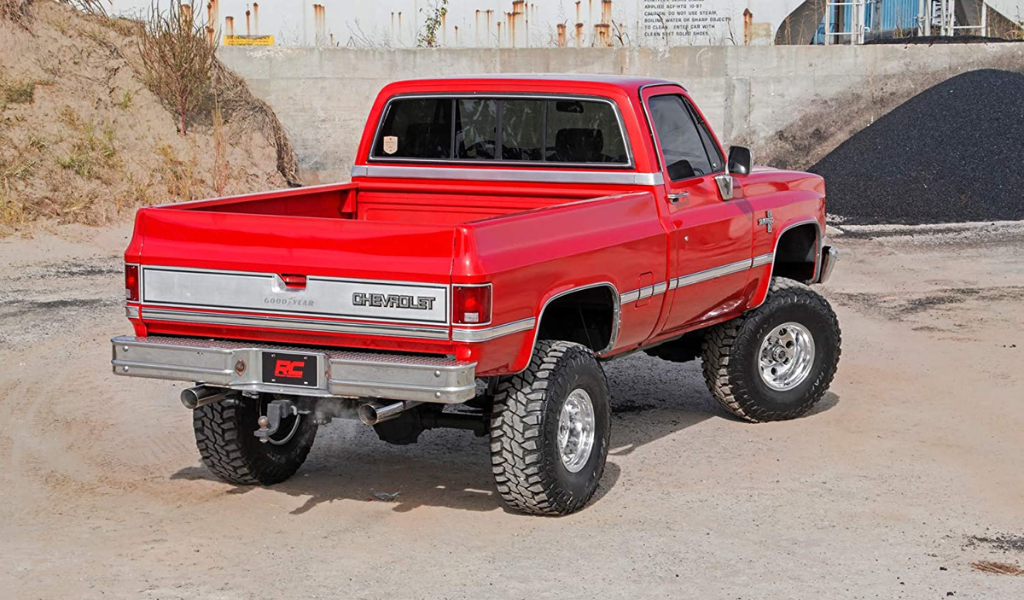Lift kits are a fantastic way to upgrade your vehicle. Clear advantages also come with lifted trucks. However, dealerships for automobiles forbid tenants from lifting their trucks. So, can you lift a leased truck?
Yes, you can lift a leased truck. But you must speak with the vehicle’s leaseholder to confirm that lifting is allowed. Keep in mind that it won’t affect the manufacturer’s warranty either. While some auto dealers permit truck lifters, many do not. However, it would be best if you stayed within limits, as the usage of lifting kits might impair the effectiveness of your tires and engine.
It is essential to ascertain whether lifting a rented truck is permitted. So, let’s talk about it in depth for a better understanding!
Basics Of Lifting A Leased Truck

You might wonder if you can make specific changes to your leased truck. One of them can be whether you lift your rented truck. It’s common to oppose changes. But you can use a few techniques to make specific adjustments without nullifying the manufacturer’s warranty or incurring additional costs.
Only easily detachable equipment can be used to lift a rented truck. Make sure the guarantee from the supplier is not endangered as well. It is advisable to consult the dealer before implementing any modifications. But take care when doing so because there can be financial consequences at the expiration of your lease.
A lease may allow you to make some modifications. Your limitations with a truck that is leased are a separate issue. A due date specifies when you have to deliver the vehicle owned by the lender.
Things To Consider When Lifting A Leased Truck

Elevating a truck is one of the most fashionable enhancements available. But there are restrictions when renting a truck. Therefore, before lifting your rented truck, keep the following in mind:
Producer’s Guarantee
The manufacturer’s warranty could be harmed if you lift your rented truck. The truck’s warranty can be voided if the factory-supplied car parts are damaged during the lift setup. Suppliers and dealers can reject warranty claims if you’ve made any modifications to the car.
Numerous truck owners choose to carry out their DIY lift work. Although if you are renting, it is definitely advisable to have an expert technician conduct the task. To avert any problems, the installation’s quality is necessary.
Furthermore, staying away from inexpensive materials will assist you in eliminating claims in the future that might depend on your company’s guarantee. Hiring an expert to reverse the lift on your rented vehicle is also a good idea.
Types Of Lift Kits

If you’re considering elevating your truck, you should know the many lift kit kinds. Depending on the primary justification for doing so, you must decide which type of lift you want to install on your leased truck.
Body Lift Kits
You can lift your truck and increase the distance, all while keeping the suspension intact if you use a body lift.
Using this technique, the body must be unbolted from the frame to raise the car. In addition to re-bolting, you must put 1-3-inch polyamide spacers between the chassis and body. Despite requiring more effort than suspension lift kits, body lifts are more affordable.
Body lifts keep the suspension kinematics and balance from the manufacturer. These lifts separate the body and the chassis. It can occasionally affect results by shifting the gravity center of the truck.
Suspension Lift Kits
You must perform more complex modifications to space and elevate your vehicle using a suspension lift. You’ll probably need to use bigger shocks to add a suspension raise. A truck’s full suspension can be changed without causing additional harm.
The user can lift the car as far as the driver finds suitable with these lift kits. Additionally, they permit the use of a significantly larger tire and wheel hub bearing combo. Furthermore, suspension lift kits frequently make the ride rougher.
Coil Lift Kits
Compared to suspension lifts, this kind of kit is more affordable. It allows space of 75 and 2.5 inches between the body and the springs.
Budget Boost Systems are another name for coil kits. They often consist of longer sway bar links. Several coil kits include smaller front spring spacers and bigger front spring spacers.
Leveling Kits
A leveling kit is a type of suspension improvement material used to align bigger tires for enhanced quality and a more appealing appearance.
The improvement of ride height is another reason to use a leveling kit on a truck. The spacers attached to the top of the struts are known as kits. Always use spacers that are the right size for your vehicle to avoid damaging your balance.
Tire Size
It is crucial to remember that a body lift or suspension lift can necessitate you modifying the width of the tires on your rented truck.
The retailer anticipates receiving the company’s tires back with the truck when the lease expires. Therefore, adding additional tires has associated expenditures with taking into account. Moreover, you need to put the previous ones back on the truck.
Cost
Think about the expenditures involved in lifting your leased truck. Unlike suspension lifts, which can cost thousands of dollars, body lifts can price as little as a few hundred.
Analyzing the benefits and drawbacks is crucial. You must consider the lift on your truck’s final use to assess how much you are ready to pay up ahead. Additionally, upgrading tires cost a lot of money.
Keep in mind that the length of your truck rent is probably about 2-3 years. So it’s vital to assess whether the expenses are justified.
Lift Reversal
It is crucial to consider whether you will have to spend to reverse the improvement if you intend to lift your rented truck. You might have to give the dealer more money for the changes if you don’t remove the lift.
It gives you more comfort to realize that switching the lift on your leased truck is possible. However, you must ensure that your vehicle is correctly adjusted after removing the raising kit.
Furthermore, ensuring the exact tires are reinstalled on the truck is vital. Therefore, you need to hire an expert for this kind of work.
Tips For Adding Lift Kits On Leased Trucks

Higher elevation height on a truck has many stylistic and functional advantages. But not everyone should lift a leased truck. If you’re thinking about raising your leased truck, abide by the straightforward advice given below:
Select The Correct Height
The size of the lifting kit you select for your rented truck doesn’t always indicate its quality. Lifting your vehicle will provide excessive ground elevation and may eventually cause harm. In light of the sort of vehicle you leased, it is necessary to select the appropriate height.
Your driving skills and lifestyle will determine your lift package’s height. Keep in mind that a heavy lift can affect fuel efficiency. Additionally, it impairs your control and driving.
So select the appropriate height. You risk damaging your truck if you don’t. The cost of returning it is higher as a result.
Never Trade Value For Cost
Lifting your truck can be expensive, especially when you include all the unexpected costs. Avoid compromising by picking less expensive products when selecting the best alternative for your vehicle.
You will get less safe or inappropriate items when you use less expensive auto parts. The suspension system can break as a result of this. The vendor will consequently charge more money.
Adding a kit in the shorter elevation range can be a good option if you seek ways to make the procedure more economical. You should also take reversibility into account.
Do Not Install The Kit Yourself
It could look fantastic to set up your lift kit yourself. It’s not as simple as you may assume. Your car may experience various issues in the future because of incorrect setup. Additionally, it can harm your leased truck’s body, chassis, or suspension.
It is best to seek out a qualified expert’s assistance. A specialist knows your truck’s precise characteristics to guarantee that the procedure is carried out accurately and safely. So involve a mechanic to safely and effectively install your lift kit.
Conclusion
It’s thrilling to lift a truck. However, buyers have varying alternatives depending on whether they own or lease. As a result, it can intensify into a headache whether you can lift a leased truck. So, it would be best if you learned everything there is to know about raising a rented truck.
We hope our explanation of whether you can lift a leased truck is clear. Your leased truck can get a lift. However, there are a few restrictions. It is crucial to think about if you intend to reverse the lift. So, think carefully before getting your lifted leased truck!